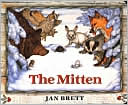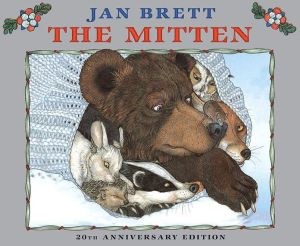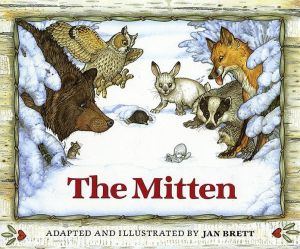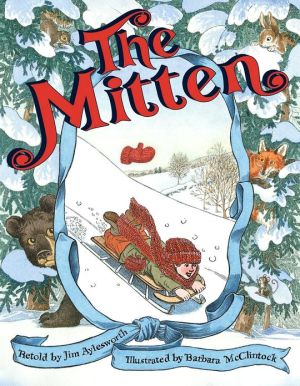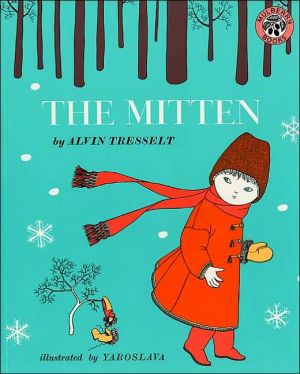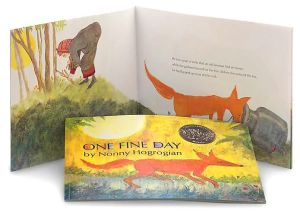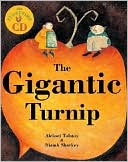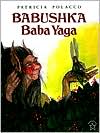Luba and the Wren
When Luba helps a frightened wren, it promises to grant all of her wishes. "I am content, I have no wish," Luba says-at first. Then Luba's parents convince her to ask for a bigger house. After that, they want an estate, and later, they ask for a palace. With the granting of each wish Luba hopes her parents will be satisfied, but instead they only want more. Where will it end? This Russian version of The Fisherman and His Wife masterfully illustrates the rewards of simplicity and the dangers...
Search in google:
When Luba helps a frightened wren, it promises to grant all of her wishes. "I am content, I have no wish," Luba says-at first. Then Luba's parents convince her to ask for a bigger house. After that, they want an estate, and later, they ask for a palace. With the granting of each wish Luba hopes her parents will be satisfied, but instead they only want more. Where will it end? This Russian version of The Fisherman and His Wife masterfully illustrates the rewards of simplicity and the dangers of greed. "Polacco's freely brushed watercolors are bright with decorative borders, richly patterned clothing, and exotic onion domes." (Booklist)Publishers WeeklyPolacco (Rechenka's Eggs; Babushka Baba Yaga) again uses old-world Russia as the backdrop for a timeless, vigorously illustrated tale, this one a variation on The Fisherman and His Wife. Here it is a young girl who rescues an enchanted creature, a wren, which offers to grant her a wish. Content, she requests nothing, but her parents force her to bring the wren a series of rapidly escalating demands. The brilliant hues of Polacco's sprawling, full-spread paintings intensify as the parents' greed grows and they upgrade their station in life from dwelling in a humble dacha to reigning as "Emperor and Empress of all the world." Creating an effective contrast to these splendid surroundings, the artist depicts the wren's forest home as increasingly dark and foreboding. With the bird's burgeoning disgust at the parents' demands, the sky becomes blacker, the wind howls and storm clouds "rolled angrily in the sky." Youngsters may need some adult help to grasp why the wren's granting of the parents' final, "sacrilegious" wish--"to be as Gods"--finds them back in their original dacha yet "happy, and very, very content indeed." But even if it's a bit subtle, the happy ending puts an agreeable spin on the standard version of this tale, teaching the same moral in a light and positive manner. Ages 4-8. (May)
\ Publishers Weekly\ - Publisher's Weekly\ Polacco (Rechenka's Eggs; Babushka Baba Yaga) again uses old-world Russia as the backdrop for a timeless, vigorously illustrated tale, this one a variation on The Fisherman and His Wife. Here it is a young girl who rescues an enchanted creature, a wren, which offers to grant her a wish. Content, she requests nothing, but her parents force her to bring the wren a series of rapidly escalating demands. The brilliant hues of Polacco's sprawling, full-spread paintings intensify as the parents' greed grows and they upgrade their station in life from dwelling in a humble dacha to reigning as "Emperor and Empress of all the world." Creating an effective contrast to these splendid surroundings, the artist depicts the wren's forest home as increasingly dark and foreboding. With the bird's burgeoning disgust at the parents' demands, the sky becomes blacker, the wind howls and storm clouds "rolled angrily in the sky." Youngsters may need some adult help to grasp why the wren's granting of the parents' final, "sacrilegious" wish--"to be as Gods"--finds them back in their original dacha yet "happy, and very, very content indeed." But even if it's a bit subtle, the happy ending puts an agreeable spin on the standard version of this tale, teaching the same moral in a light and positive manner. Ages 4-8. (May)\ \ \ \ \ Publishers Weekly"Even if it is a bit subtle, the happy ending puts an agreeable spin on the standard version of [`The Fisherman and His Wife'], teaching the same moral in a light and positive manner," said PW. "A timeless, vigorously illustrated tale." Ages 4-8. (Feb.) Copyright 2001 Cahners Business Information.\ \ \ Children's LiteratureThis book is a retelling of the timeless folktale, "The Fisherman and His Wife." The author sets her tale in 19th century Russia, with a humble child and her discontented parents as main characters. When the gentle daughter rescues a small wren caught in a net, she is rewarded with a wish from the surprisingly magical bird. Although the child states, "I am content, I have no wish," her parents disagree. As the parents' demands for increasing wealth and power escalate, the child's discomfort grows. As with most children's folktales, this story concludes with a happier and wiser family. As a read-aloud story, the book's sentences do not always flow as the reader might wish, but the vocabulary is rich and lively. Although younger children may lose interest with the length of the text, they will be captivated by the illustrations. Patricia Polacco's illustrations shine as usual. Her attention to detail and use of color provide a feast for the eyes. 2002, Puffin/Penguin, Ages 4 to 8. \ — Paul Mauer\ \ \ \ \ Children's Literature\ - Marilyn Courtot\ The story may be familiar it is an adaptation of The Fisherman and His Wife, but the Russian setting lets Polacco's art transport readers to another time and place. Little Luba, the daughter of a poor farmer and his wife, is a happy child. One day during a mushroom hunt in the forest, she frees a wren from a snare. The wren is magical and offers to grant Luba a wish. She has none and returns home to tell her parents. They lament and beg her to return to the forest to obtain a bigger house and more productive land and that is the start of their unhappiness and insatiable desire for more and more. They become the Emperor and Empress of the world and even that is not enough. When finally they ask to become gods the wren who has become increasingly angry returns them to their original state and then they are once again happy. Luba rejoices, she once again has her humble home and loving parents. The illustrations grow more lavish as the parents increase their station in life while the forest where the wren lives becomes darker and more foreboding as her wrath at the parents greed escalates. A story that may require adult interpretation, but another winner from a master storyteller.\ \ \ \ \ School Library JournalPreS-Gr 2A variation of a traditional tale. Looking for mushrooms in the forest, a young girl saves a wren from a fowlers net and to show its gratitude, the bird grants her any wish. Luba realizes that she is content and when she declines the wish, the wren tells her, If ever you want for anything, come to the forest and call me. When the child tells her parents about the incident, they send her back to the wren five times, each time asking for a grander home and more riches until, after they have become Emperor and Empress of all the world, they ask to be as Gods. When the wish is granted, they are returned to their former peasant life, but are truly contented and realize that Luba is their greatest treasure. Polaccos signature illustrations are lush and vibrant. The regal colors of royal blue and crimson play against deep green, dappled brown, and ocher of the natural world. Rosy-cheeked Luba appears humble and honest in her babushka and Ukrainian peasant apparel throughout, while her parents, as they increasingly receive greater material wealth, don the clothing of royalty. Scrolled, intricate frames set the text apart from the lively folk-artlike illustrations. Like Rosemary Wellss The Fisherman and His Wife (Dial, 1998), this picture book examines true happiness and the snares of yearning for material things.Shawn Brommer, Southern Tier Library System, Painted Post, NY Copyright 1999 Cahners Business Information.\ \ \ \ \ Kirkus ReviewsIn this child-centered version of "The Fisherman and his Wife," Luba, a little girl, rescues a wren from a hunter's net, and the wren offers to grant her a wish. Luba, content, turns the wren down but is sent to search for it by her parents as soon as they hear of her good deed. The wren immediately grants their wish for a better house and fertile land, but those familiar with the tale will know that the parents grow greedy, never satisfied for long with their estate and servants, their roles as rulers of the Ukraine, their days as tzar and tzarina of all of Russia. Luba, for her part, grows ever more reluctant to approach the little wren, whose temper is strained with each wish; the weather in the background becomes more and more foreboding. Finally, the parents go too far and demand to become gods. Polacco offers a solution that is almost zen-like in its simplicity, and Luba is rewarded with a happy and loving childhood. The large drawings bring Luba and her parents to life amidst the colorful splendor of the parent's accrued wealth; with a vivid text, this is very fine retelling of a well-known tale. (Picture book/folklore. 4-8)\ \

